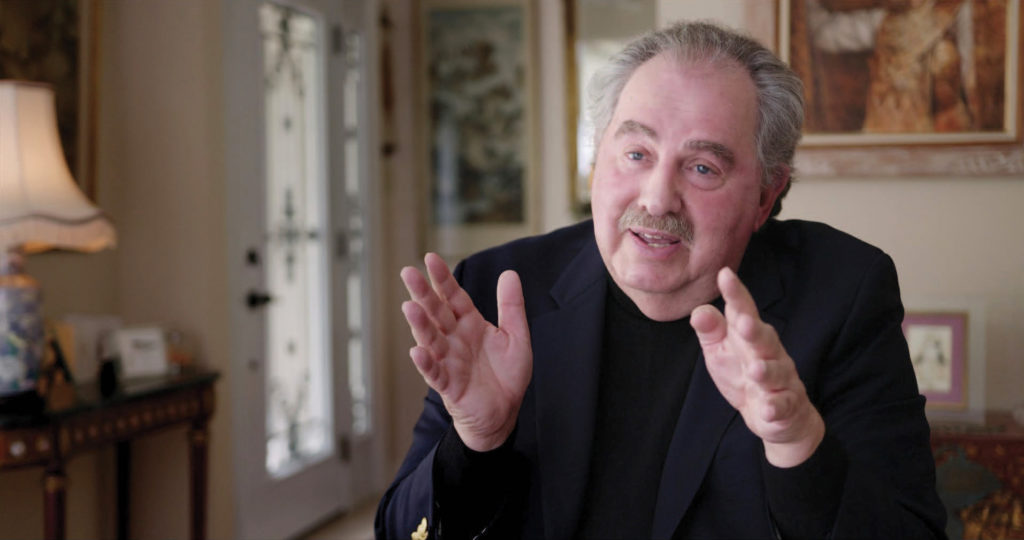It was the talk of the country in 1972 when Canada and Russia played in hockey’s Summit Series – the first competition between the National Hockey League’s best Canadian professionals and the Soviet Union’s “amateur” national team. Glendon grad Gary Smith was at the centre of it all as a 28-year-old Canadian diplomat in Russia and now, 50 years later, he has written a riveting, behind-the-scenes account of how the series came to be and what it meant to hockey, Canada and international relations.
Ice War Diplomat was released this past spring to glowing reviews and IceBreaker: the Legacy of the ‘72 Summit Series, a bilingual feature-length documentary based on it, will premiere this fall in time for the 50th anniversary of what many regard as one of the defining moments of Canadian history.

When Prime Minister Pierre Elliott Trudeau was looking for common ground to engage with the Soviets during the Cold War, hockey was the obvious choice between two northern nations that dominated the game. In 1972, Smith was a player in a diplomats’ beer league in Moscow, spoke Russian and had learned much about the politics of Soviet hockey and the people who ran it. He was a natural for the job. He travelled with the Russian team in Canada as a liaison for the first four games of the series and assisted the Canadian team for the four games in Russia. It was no easy task and several times he had to work to resolve issues that threatened to scuttle the series at any moment.
Smith said the idea for the book came to him when he was visiting Russia in 2017 for events marking the 45th anniversary of the series. There were plans for commemorative events in Canada for 2022 and Smith, who was by now retired, decided he had a good story to tell, one that in the almost 50 books written about the series, had never been told.
When he sat down to write his book – after his wife Laurielle died and just as the Covid epidemic was beginning – Smith was aware that he had to tell a good sports story, but he also wanted to explain the importance of diplomacy to a wider audience. “I now had the time to write, so I just put my head down and started bashing it out,” he said.
At the same time as he was writing, White Pine Pictures in Toronto heard about his project and optioned it for the documentary in association with Montreal’s Adobe Productions International. Smith was now writing a book and serving as executive consultant to the movie – a process he described as “riding two horses at the same time”. “The book informed the movie, and the movie informed the book,” Smith said. “It was cross-fertilization.”
Smith went to Moscow in September 2021 to film various segments and will appear in many of them. The production will hit festivals and theatres this fall to mark the anniversary of the month-long, eight-game contest that ultimately saw Canada win on the famous last-minute goal by Paul Henderson. It is a moment etched in the memory of Canadians – and on stamps, posters, sculptures and book covers throughout the country and the hockey world.
The Summit Series had the desired result of building a bridge between the Soviets and Canada and that, says Smith, is the importance of the event for Canadian history. “We didn’t get going on a war,” Smith said. “Canada was looking for some common ground and sports diplomacy provided it – and for vast swaths of the population (in both countries).”
Relations with the Soviet Union cooled somewhat with the invasion of Afghanistan in 1979. History is repeating itself now with the Russian invasion of Ukraine. There were a lot of plans for the 50th in Canada and Russia, Smith said, but many have been cancelled due to the conflict and the resulting sanctions.
Gary J. Smith spent 30 years as a diplomat in posts around the world before returning to Canada permanently. In 1998, he was named vice-president (University Advancement) at York and spent the next four years building up the University’s fundraising efforts, including the successful 40th anniversary campaign and founding the York U Alumni Awards program. While at Glendon, he was a student journalist for Pro Tem and graduated in 1968 with an honors degree in political science (cum laude).
